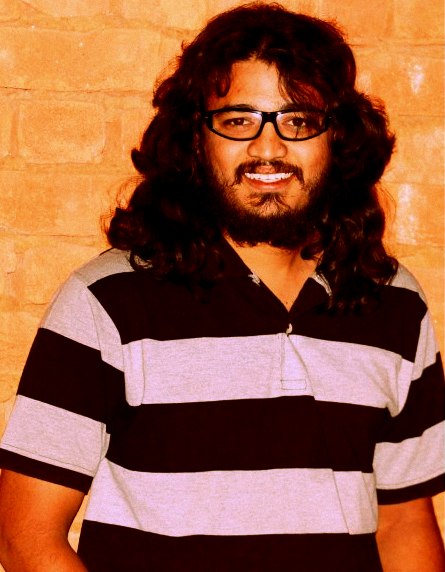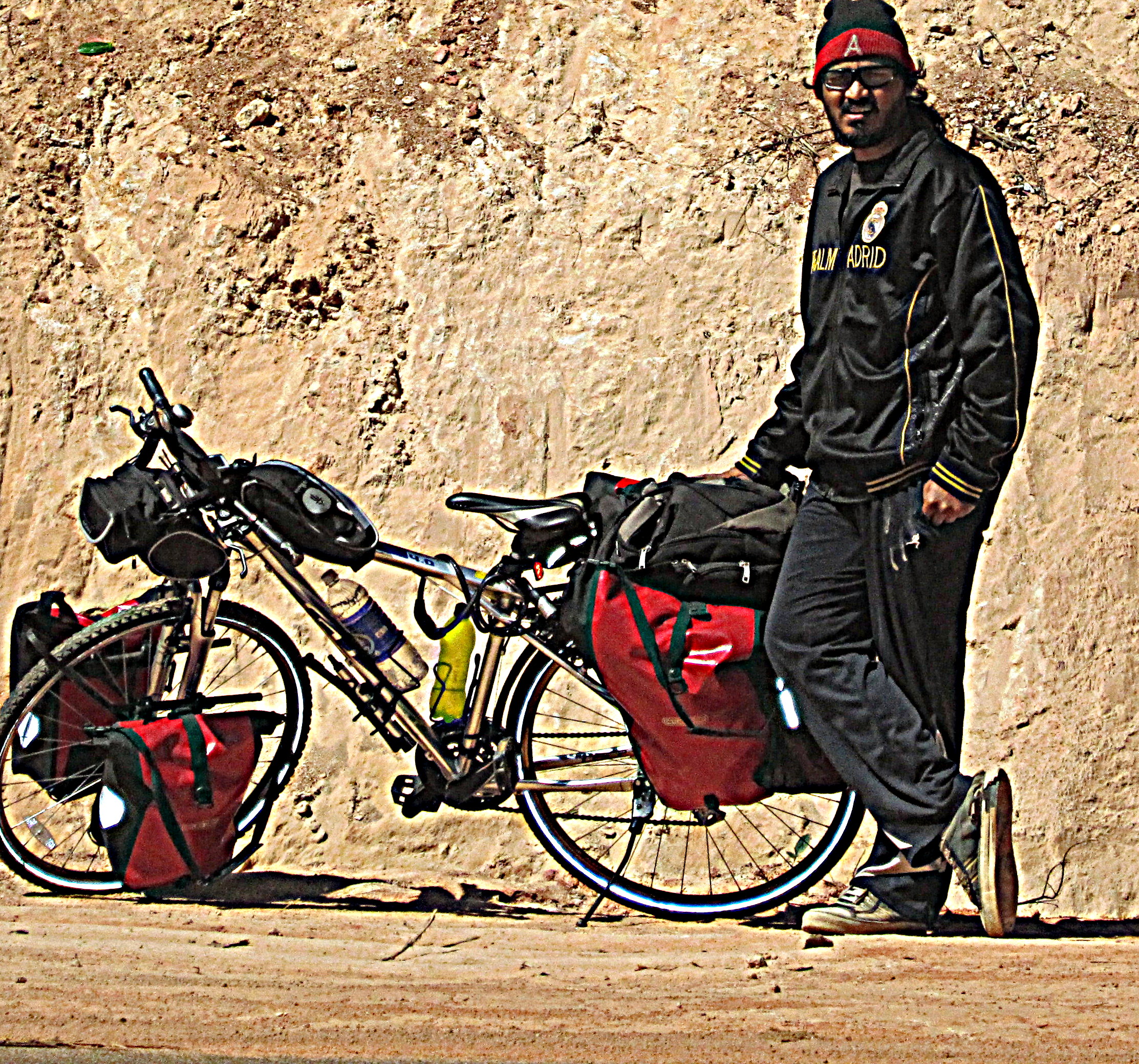- Tell us about yourself
I am Akram Feroze, a dropout from graduation. I was pursuing graduation in genetics, when I fell in love with arts, and dropped out of college. Then joined television as a Creative and Program Producer, after a year I quit my job and worked as leadership trainer and then quit again, and started my journey as a theatreman, directing, writing and acting in plays like “An Interview with God” “EK-Tha Raja” and so on. And then one day left my home with 300 rupees and a cycle to experiment something new.
- Tell us about Cycle Natak
Cycle Natak is basically a one man’s lifetime journey across the country, performing theatre and living his life on road. It was basically a dream to travel, see life, learn from people and live life on edge, but travelling financially is not the most sustainable in our country, so I decided to travel cheap, and bicycle seemed the cheapest transportation for long, but being a theatre passionate I didn’t want to keep theatre away from me, and then I felt it can also help me sustain my life on road. So it was always a mix of childhood fantasy, teenage dream and adultery passion for unknown roads and theatre.
- Entrepreneurship in Performing Arts – is really a new concept. What are the pros and cons of following a path which is less heard of?
Culturally performing arts in our country has always been in rituals to God and education. Now both the fields are not traditional entrepreneurial but bound out of love and passion. And when we look at core of entrepreneurship the basic are same love and passion. And both are personally highly rewarding and gives back something to society. So entrepreneurship for me is about that risk, thrill and journey. And that journey is not the easiest; it has its challenges from personal, societal and our relationships. People will not understand why take a new road when you have road laid by others, but the more and more you travel in the road not taken, you get people’s confidence trust back on you . And that is immensely satisfying at the end of the day.
- What keeps you going?
Convincing parents was one of the most difficult parts at the start, but then I didn’t show them the Everest ahead, but showed them the little hills I have to climb. I said let’s see for 1 month if I can really sustain and enjoy it, if I am able to I will continue. And that’s how I set off for a month, and now it’s been around 2 years I am able to sustain and enjoy it too. And if taking the step and diving in the dreams was tough, but sustaining that was tougher. As I started with little money I decided I will never stay in hotels instead use my tent or make strangers friends, and then language barriers, then there are incidents where people beat you up, robberies, or even sleep foodless on footpaths. So I constantly have to motivate myself, remind myself of my dream, and try my best and leave the rest to road as that’s out of my control. Because the whole entrepreneurial idea is so different I constantly get resistance from people to accept it , but again that’s not in my control. So I keep pushing, and yes now people look up at it and yes this is something new and different and its possible..!! So there is always a scope to create new roads if you have the will and passion for it.
- How do you deal with the villagers? How do you plan for your theatre plays? What are the themes you write plays? How do people relate to it?
Villagers are wonderful people if you are honest and dedicated for your work. At start I had no idea how would they react to it, but slowly I realize its about making relationships with the strangers and they will help and guide you. And so the theatre journey has been evolving along with me, at first I used to perform monologues but used to fail in excite people about it, then as I travelled I met theatre groups learnt from them, and then tried involving the local villagers in the theatre and then started liking it. And then I involved social issues and awareness of rights which is required in that local region. So in any entrepreneurial journey it’s important to make relationships with your shareholders and also keep learning and evolving in the journey.
- What are your plans to sustain this enterprise?
Generally I don’t plan much, I look to get the food and bed for the night and then try performing theatre. And to sustain this enterprise I make sure I work during journey with whatever job I get, be it a farmer, teacher, fisherman or labour. And I am able sustain it with people acknowledging the idea and giving me the work, or paying me later as contributions to their dreams. Enterprising is not about the turnover at the end of day or how rich I am, but about sustaining the idea with having the same passion and love for it on the first day of the journey.
- Can you share with us the most funny and embarrassing experiences you had while visiting the villages?
I was performing a theatre on drinking issue, and I was wearing a Dhoti, (I didn’t knew how to tie a Dhoti) and during the play Dhoti slipped off, and all the villagers started laughing, as a artist I tried to make it as a part of play. But that was embarrassing then but sounds funny now 😀
- Whom do you admire as your role model? Why?
Safdar Hashmi Sir, the way he used to theatre for the rights of people and never gave up for fighting truth and rights of oppressed.
- Being a Director/Actor/Writer/Traveler at a very young age, where do you see yourself in future?
As a Journeyman , who is trying to perform theatre for the rights of oppressed and experimenting with his life in those unknown roads.
- Your message to the aspiring entrepreneurs?
“Do Not Give Up” Have the passion, little madness and the right efforts should take through the unknown roads. Dream It! Live It!. And yes, Entrepreneurship is no fun journey, but if there is no fun then what is the value of the journey. So do not fear to take the unknown roads, because in unknown the journey is more important than destination!!





0 Comments